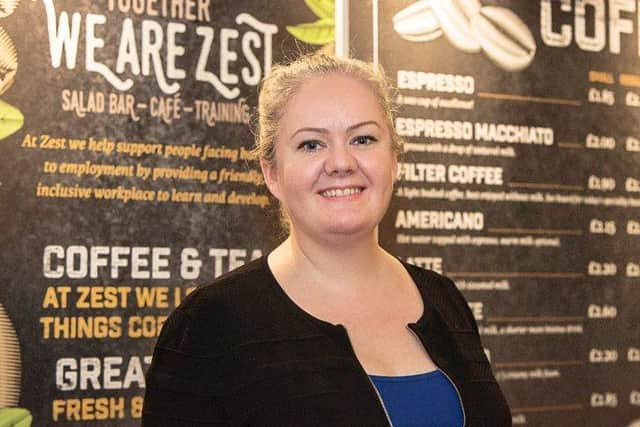Fife social enterprise café owner’s doubts over Jeremy Hunt’s ‘Back to Work’ scheme for sick and disabled
and live on Freeview channel 276
The owner of a St Andrews social enterprise café which has used work placements and training for 15 years to help people struggling to get paid work into jobs has cast doubts over whether UK Chancellor Jeremy Hunt’s ‘Back to Work’ plan will work.
Lisa Cathro, owner of the multiple award-winning St Andrews social enterprise café We Are Zest, whose mission is to help young people with Additional Support Needs gain or keep meaningful employment by training them in hospitality skills and supporting them through gaining qualifications to get long-term jobs, said in a blog post there are many questions to be answered about the scheme announced earlier this week by Hunt for mandatory work placements for long-term benefit claimants to help them back into work.
Advertisement
Hide AdAdvertisement
Hide AdZest works alongside Fife Council Supported Employment Service, Job Centre Plus, Fife College and HMP Castle Huntly to provide learning opportunities through work placements.


In her blog, Lisa said she has doubts about whether the plan would work because there are so many unanswered questions about it, including who is going to be running, monitoring, and reviewing these work placements; do they have employers on board already; do they know how to do work placements – and are people just going to be popped out to employers without the skills to produce good outcomes for these people, and with the possibility of vulnerable people being taken advantage of?”
She also has concerns because it feels to her as if this plan has been created solely from an economic view of moving the “economically inactive” towards helping the UK achieve better growth rather than an actual concern for people’s wellbeing,
Also, “skills don’t appear overnight. It takes time to train your team coaching skills, to notice the signs when a disabled person is getting overwhelmed (it’s not always obvious to you or the person) and how to adapt their tasks or the job role to suit their abilities and learning style.”
Advertisement
Hide AdAdvertisement
Hide AdLisa adds employers need to feel comfortable with having uncomfortable conversations, not be scared to try out disability adjustments without the fear of getting it wrong or not supporting the person properly
She also has concerns from past experience of helping people whose placements elsewhere have failed leaving young people feeling worse that the culture of firms offering placements under the scheme may not correctly support these vulnerable people.
To do so they need to accept the Social Model of disability – that they need to change the work environment to remove barriers and not try to change the person to fit expectations. A lot of employers don't know that, but would if they knew, she says.
In conclusion, Lisa writes: “We’ll have to wait and see what plans have been put in place by the DWP.”